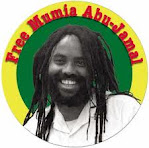An Open Letter concerning the Crisis in Libya
by the National Conference of Black Lawyers
April 7, 2011
President Barack Obama
The White House
1600 Pennsylvania Ave, N.W.
Washington, D.C. 20500
Re: An open letter concerning the crisis in Libya
Dear President Obama:
In 2002 you made the following statement: "I don't oppose all wars. What I am opposed to is a dumb war. What I am opposed to is a rash war." As Commander-in-Chief of U.S. military forces you ordered use of force against the sovereign state of Libya, and there are many who are asking whether you commenced an armed conflict of the very kind that you condemned in 2002.
The framers of the Constitution and the Congress established guidelines for use of the military that are designed precisely for the prevention of rash, ill-advised wars. Article I, Sec. 8 of the Constitution gives the power to declare war solely to the Congress. Recognizing that there are occasions when use of the military is necessary in the absence of a formal declaration of war, Congress passed the War Powers Resolution. That resolution gives a President the authority to use the military under only three very specific circumstances: (a) when the Congress has declared war; (b) when there is specific statutory authorization to use the armed forces; or (c) when the U.S. has been attacked.
In the case of Libya, Congress neither declared war nor passed legislation giving you authority to use force in that country. That means that the only circumstance that could have given you authority for your actions would have been an attack of some kind against the U.S., its territories or possessions, or its armed forces. To our knowledge, the U.S. was in no way attacked before you ordered attacks on Libya's soldiers and weaponry. Consequently, there was no lawful basis for commencing a military campaign in that country.
United Nations Security Council Resolution 1973 has frequently been cited as justification for your actions. It calls for a no-fly zone, an asset freeze and other measures intended to "protect civilians and civilian populations under threat of attack" by the Libyan government "while excluding a foreign occupation force of any form on any part of Libyan territory." We object strongly to any suggestion that this can in any way be regarded as a substitute for Constitutional and Congressional guidelines for use of force. Nevertheless, we believe it is worth noting that even if Resolution l973 were a legitimate basis for U.S. military action, this Resolution is limited in its scope, and it does not, in either its letter or spirit, suggest that the Libyan crisis can or should be addressed solely by military means.
Specifically, the Resolution: "[s]tresses the need to intensify efforts to find a solution to the crisis which responds to the legitimate demands of the Libyan people and notes the decisions of the Secretary-General to send his Special Envoy to Libya and of the Peace and Security Council of the African Union to send its ad hoc High-Level Committee to Libya with the aim of facilitating dialogue to lead to the political reforms necessary to find a peaceful and sustainable solution." (emphasis added)
The absence to date of any significant U.S. attempts to engage in dialogue, along with your own rhetoric that demands that "Qaddaffi must go" all prompt reasonable conclusions that U.S. objectives extend well beyond the protection of civilians, and may well be focused on what has become popularly referred to as "regime change." If that is the case, we are compelled to urge that you not cherry-pick those institutional aspects of the U.N. that you believe will support such an agenda. The U.N. Charter stresses the importance of: self-determination [Art.1(2)]; peaceful settlement of disputes [Art. 2(3)]; and a duty to refrain from use of threats or "use of force against the territorial integrity or political independence of any state. . ." [Art. 2(4)].
Finally, We must remind you that your actions do not occur in a vacuum. The U.S. and other western countries have a long, shameful history of imperial intervention and domination of countries in Africa and in other underdeveloped regions. Whatever your objectives may be in Libya, they are considered against that historical backdrop. In the interest of respecting the rights of the people of that country to determine their own destiny, we urge in the strongest terms that you respect the rule of law as you address the challenges presented by the Libyan conflict.
The National Conference of Black Lawyers (NCBL) thanks you for considering our thoughts on this matter, and we will remain available to respond to any of your concerns or questions.
Mark P. Fancher, Coordinator
NCBL AFRICOM Task Force
حسافة
-
حسافة
(كلمة عامية عربية تعني "للأسف" أو "يا للخسارة"، وتُستخدم للتعبير عن الندم
أو الأسف على شيء ما)
هكذا كنّا في منتصف خمسينات القرن الماضي، *مُربّ...
31 minutes ago






























0 comments:
Post a Comment